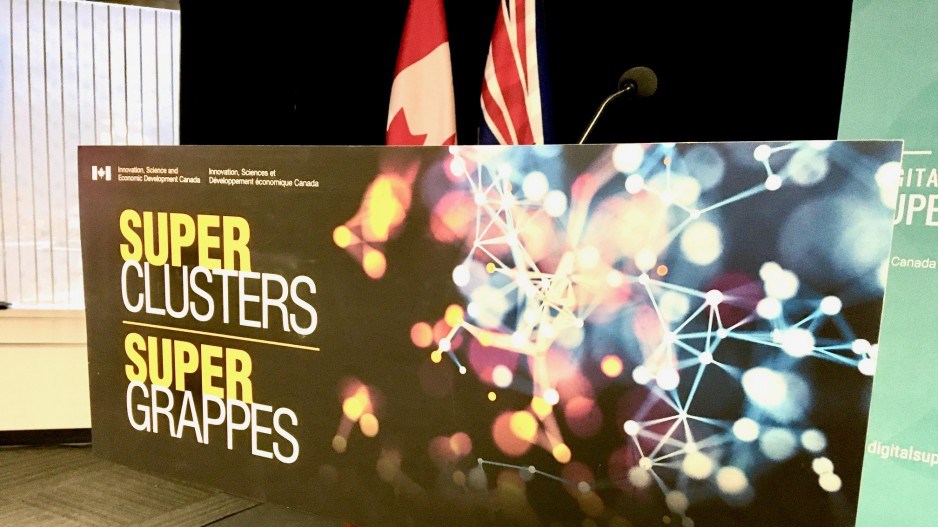What happened: Digital Technology Supercluster wraps $60 million in COVID-19-related investments
Why it matters: Projects approved from outset of pandemic have begun delivering on results aimed at addressing novel coronavirus
When the Vancouver-based Digital Technology Supercluster received a $153-million funding commitment from the federal government in fall 2018, the aim was to stoke business collaborations between a broad range of private and public organizations over five years.
The pandemic shook up those plans in its immediate wake, with Ottawa mandating in April that all five of the nation’s superclusters were to redirect resources towards addressing COVID-19.
After four months of approving projects for funding, the Digital Technology Supercluster has closed out its investments to the tune of $60 million with the approval of 16 final projects on Thursday (August 6).
The Vancouver-based supercluster, which is open to organizations with a presence anywhere in Canada, estimated in January that its pre-pandemic initiatives would create more than 13,500 jobs and add more than $5 billion to the nation’s economy over the next decade.
The goal is to bolster private industry, non-profit and post-secondary collaborations on digital products that can be commercialized.
Projects must include a minimum of three organizations, at least one of which must be a small- or medium-sized business.
The consortia are to invest their own dollars into the projects, while the Digital Technology Supercluster matches up to 75 cents per dollar invested.
Over the past four months, the Vancouver supercluster has approved funding for about two-dozen projects pursuing everything from the use of artificial intelligence to explore COVID-19 therapeutics to offering virtual addiction treatments for healthcare workers.
The final 16 projects include efforts to screen employees and visitors for COVID-19 upon entry into buildings, screening assessments for vulnerable residents at long-term care facilities and a tool to assess an individual’s risk from the virus.
Meanwhile, previously approved projects have begun delivering on their proposals.
One project led by Providence Health Care has deployed 75 ultrasound scanners made by Burnaby-based Clarius Mobile Health Corp., according to the supercluster.
Most of the scanners have been distributed to rural B.C. communities in a bid to help diagnose chest-related infections and diseases amid the pandemic.




